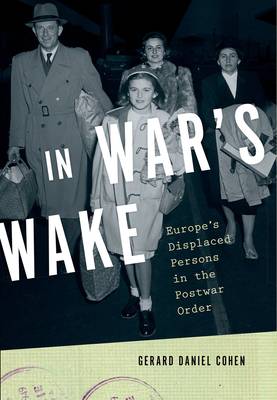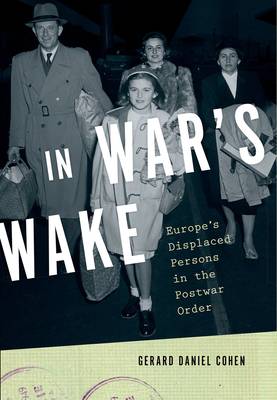
- Afhalen na 1 uur in een winkel met voorraad
- Gratis thuislevering in België vanaf € 30
- Ruim aanbod met 7 miljoen producten
- Afhalen na 1 uur in een winkel met voorraad
- Gratis thuislevering in België vanaf € 30
- Ruim aanbod met 7 miljoen producten
Omschrijving
The end of the Second World War in Europe gave way to a gigantic refugee crisis. Thoroughly prepared by Allied military planners, the swift repatriation of millions of former forced laborers, concentration camp inmates and prisoners of war nearly brought this dramatic episode top a close. Yet in September 1945, the number of displaced persons placed under the guardianship of Allied armies and relief agencies in occupied Germany amounted to 1.5 million. A costly burden for the occupying powers, the Jewish, Polish, Ukrainian, Yugoslav and Baltic DPs unwilling to return to their countries of origin presented a complex international problem. Massed in refugee camps stretched from Northern Germany to Sicily, the DPs had become long-term asylum seekers.
Based on the records of the International Refugee Organization, this book describes how the European DP crisis impinged on the shape of the postwar order. The DP question directly affected the outbreak of the Cold War; the transformation of the "West" into a new geopolitical entity; the conduct of political purges and retribution; the ideology and methods of modern humanitarian interventions; the appearance of international agencies and non-governmental organizations; the emergence of an international human rights system; the organization of migration movements and the redistribution of "surplus populations"; the advent of Jewish nationhood; and postwar categorizations of political and humanitarian refugees.
Specificaties
Betrokkenen
- Auteur(s):
- Uitgeverij:
Inhoud
- Aantal bladzijden:
- 250
- Taal:
- Engels
- Reeks:
Eigenschappen
- Productcode (EAN):
- 9780190840808
- Verschijningsdatum:
- 15/08/2017
- Uitvoering:
- Paperback
- Formaat:
- Trade paperback (VS)
- Afmetingen:
- 155 mm x 234 mm
- Gewicht:
- 381 g

Alleen bij Standaard Boekhandel
Beoordelingen
We publiceren alleen reviews die voldoen aan de voorwaarden voor reviews. Bekijk onze voorwaarden voor reviews.











